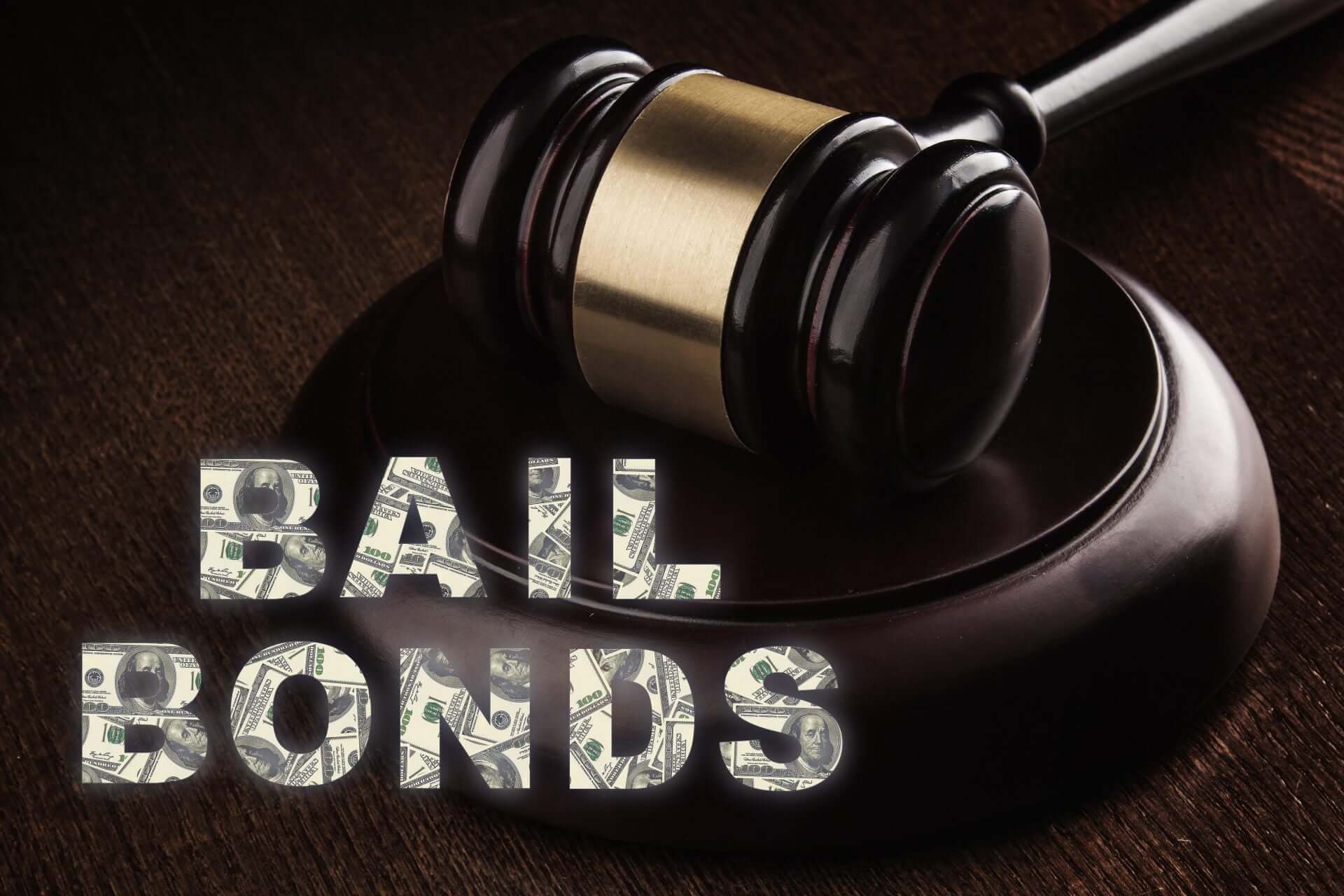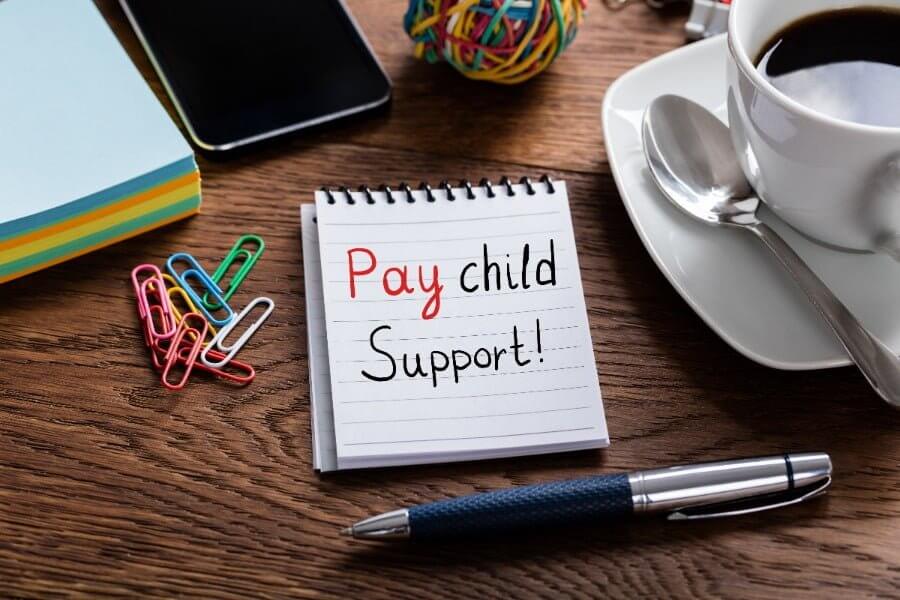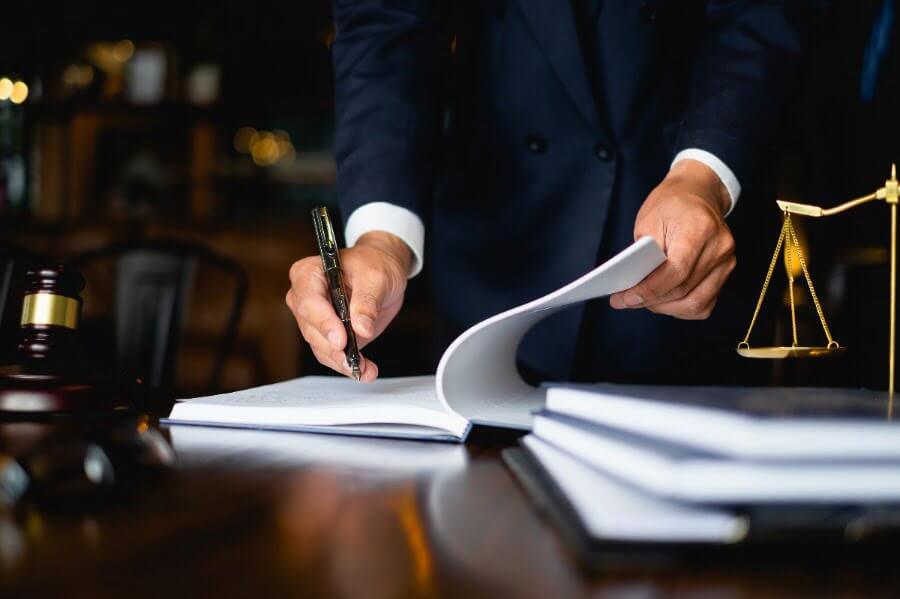Going to a court hearing can be nerve-racking. But we have listed some of the most important tips to make your experience smooth.
Top Bail Bonds Service in Lewisville, Texas
Getting arrested in Lewisville, Texas, is a stressful situation, especially when you don’t know what to expect. Delta Bail Bonds will provide a speedy release, and we can also guide you through the entire bail process.
Bail Bonds For Battery and Assaults Charges in Texas
If you or a loved one got into a fight or was otherwise an unfortunate part of an altercation, they could be taken into custody, and the court can set bail for their release. They could be facing battery and assault charges, and if you don’t want them sitting in jail while they’re waiting for their court date, you need to find a way to post their bail.
BATTERY AND ASSAULT IN TEXAS
Most states describe assault and battery separately, i.e., the former is defined as threatening bodily harm, while the latter implies bodily harm is actually inflicted. In Texas law, the two terms and their meanings both fall under the definition of assault.
In essence, assault can come in many different forms in Texas, but they boil down to the following situations:
- Causing bodily injury (intentionally, knowingly, or recklessly)
- Threatening someone with bodily harm (intentionally or knowingly)
- Causing offensive or provocative physical contact (intentionally or knowingly)
An assault with bodily injury is a crime that causes pain to the victim by the perpetrator. It doesn’t have to leave a mark on the victim’s body to be classified as such. Assault charges can range anywhere from misdemeanors to felonies.
A defendant can face an array of penalties for assault in the Texas criminal system depending on how serious the offense is and how the law classifies it. For example, a Class B misdemeanor can result in 180 days in jail or a maximum of a $2,000 fine.
On the other hand, assaults considered felonies can incur much more serious penalties. For example, a second-degree felony can result in ten years in jail or a fine of up to $10,000.
BAIL BONDS FOR THESE TYPE OF CHARGES
If you, your family member, or someone you love has been accused of an assaultive offense in Texas, you will be taken into custody and if you’re fortunate, face the bail bond process. The judge will determine the amount of bail you need to post in order to await your court hearing outside of jail. After the court appearance, you get the money back.
The defendant can pay the bail bond amount themselves. But if you’re unable to come up with the amount of cash necessary, you can also contact a bail bond company. Bail bondsmen post the bail for you for a small percentage of the bail as their fee.
DELTA BAIL BONDS CAN HELP
If you’re faced with a bail bond for battery and assault charges you cannot pay, we can help you out! At Delta Bail Bonds, we don’t discriminate. We treat our clients as human beings, regardless of any previous convictions or their criminal history.
You can contact us any time, and we’ll provide impeccable service. Your bail bondsman will keep you informed and give you useful advice on the best course of action. There’s no need for you to stay in jail, when we can bail you out and help you get ready for your court appearance.
How Is Bail Set in Texas?
There are plenty of things that can determine how a bail amount is set in the state of Texas. But first, it’s useful to know the basics of what bail is. Basically, it’s the sum of money you pay to be able to await trial at home. However, not all arrests can result in bail, and you won’t always be able to pay the bail amount yourself. So, let’s learn about how bail is set and what your options are.
Bail Depends on The Type of Arrest
When talking about the bail amount, it’s important to note that it won’t always be the same. Again, several factors will play a role here. However, the most important one is the severity of the crime. In the state of Texas, misdemeanors and less severe crimes can entail a bond ranging from $1,000 to around $3,000. On the other hand, suspected murders can warrant as much as $1,000,000. So, if you get arrested or if your loved one needs your help with bailing them out, you should be prepared and not surprised when you see a few more zeros on the check than you expected.
It’s Up to the Judge
Bail hearing is the time when you’ll be facing the judge. Usually, the bail amount will stay within the mentioned ranges. However, it’s really up to the judge to decide on the amount.
No two crimes can have the same circumstances. The judge will have to determine what they think is the appropriate punishment after hearing your side of the story. So, they can decide to keep you in jail until your trial, or you might be given the option to post bail to await trial from home. When it comes to less severe crimes, the judge will usually stick to setting bail, so jail time is something you shouldn’t worry about.
Bail Options
There are several things you can do when it comes to making bail. What most people opt for is having a family member post it for them. It works just as you would imagine it — someone you know will have to come and pay it for you.
Additionally, if your relatives cannot help you, you can look for a bail bond company. In that case, a bail agent will come and post the bail for you. Don’t forget that this only means that you’re able to wait for your court date out of jail. If you fail to appear in court, the judge can order another arrest.
Delta Bail Bonds Has Your Back
If you or anybody you know needs help paying their bail, we’re the right bail bondsmen to call. There are many different reasons why you should choose Delta Bail Bonds, namely convenience, assistance, confidentiality, and knowing the court system like the back of our hands. We will ensure that you and your loved ones have the best possible experience in such an unfortunate situation. So, contact us today, and let us help you out!
HAVE YOU VIOLATED YOUR BAIL CONDITIONS IN TEXAS?
Say you get your bail in the Lone Star State, and its conditions are both constitutional and proportional to the bail amount. However, for one reason or another, you fail to meet bail conditions. What happens then? Keep reading to find out.
3 COMMON RESULTS FOR BREACHING BAIL CONDITIONS
When a person breaks the bail conditions laid out to them, the following may happen:
- A bounty hunter finds you and takes you back into custody
- The court issues a bench warrant for you
- The police return you into custody
You might also forfeit all assets if you employed one of the many Dallas bail bond companies (or wherever in Texas you’re situated), depending on the extent of your violation. For example, failing to show up at court on time could lead to a loss of assets.
DON’T RUN AWAY FROM YOUR PROBLEMS
If you happen to break certain conditions of your bail, that isn’t a crime in and of itself. Should the court learn of what you did, you’ll be put back into custody. That said, you won’t have to answer for your violation as an offense (unlike the procedure for Texas parole violations, for instance).
However, deciding to resist being taken back into custody can negatively impact your case. Moreover, violating some conditions of your bail, such as appearing in court at a given date, is an offense. Don’t evade bounty hunters or the authorities once they catch wind of what you’ve done.
THE BEST THING TO DO AFTER BREAKING BAIL CONDITIONS
So what should you do once you violate your conditions?
It largely depends on a few things. For starters, you should always respect court dates. Doing otherwise can get you into more trouble. If you break other minor conditions and the authorities catch you doing so, keep your composure. Turn yourself in without resisting arrest in any way. That’ll go a long way toward minimizing the damage made to your case.
However, what if nobody realizes you’ve breached a bail condition? Sometimes, the police don’t arrest people who ignore certain bail conditions. If what you did was a relatively minor violation (like reporting to a probation officer), odds are the authorities won’t be barging through your door to drag you back to jail.
PREVENTION IS KEY
Preventing this situation from happening is the best route for your case. Respect the parameters of your bail to your best ability. In most instances, ignoring them can result in a worse legal outcome. You could end up with another offense. By following your bail conditions, you’ll appear as an upstanding citizen worth showing leniency toward.
DELTA BAIL BONDS
If you need any advice regarding your bail, contact Delta Bail Bonds. We’ll provide all the information and assistance you need to prevent further violations. We are available 24/7 every day of the year. Our team is professional, respectful, and efficient in what we do. One of our main priorities is making sure that the bail conditions are clear before any agreement is made, to ensure a smooth bail process.
Process After Arrest
Miranda Rights
Upon your arrest, the officer must inform you of your legal rights. The Miranda warning outlines your rights following an arrest:
- You have the right to remain silent
- Anything you say can and will be used against you in a court of law
- You have the right to an attorney
- If you cannot afford an attorney, one will be appointed for you
This means you can choose not to answer an officer’s questions and may request an attorney. Attorneys encourage you to take this right seriously because even the smallest details can incriminate you in court.
Processing
When you are arrested, you will be handcuffed and taken to the local police station for initial processing. At the precinct, a police officer will question you to get personal information. This will include your name, address, date of birth, social security number, etc. Once you have been fingerprinted you will be taken to a central booking location and processed for arraignment, which is an appearance before a judge.
Questioning
The Miranda warning must come before you are interrogated or questioned. Asking for your personal information is not considered an interrogation. Once police officers begin asking questions that may implicate you in a crime, however, an interrogation has begun. Information that you voluntarily offer to a police officer after receiving a proper Miranda warning is generally admissible in court. Police officers are not allowed to use physical or psychological intimidation to get you to make a statement.
Bail Hearing
After you are accused of a crime, you are required to appear in front of a judge for a bail hearing. During this hearing, the judge will decide whether you, the defendant, will get bail or if you will have to wait behind bars until your trial starts. Bail is a set amount that someone pays for you to temporarily get out of jail. By paying bail you agree to show up at all of your court dates and follow guidelines set by a judge.
Post bond
Once a judge sets your bail you can either pay the full amount upfront or turn to a bail bond company like Delta Bail Bonds. If you don’t have the money to post bail yourself, you can pay a bondsman 10% of the bail amount or collateral to get you out of jail.
Plea Bargain
The prosecutor and the defense lawyer can negotiate a plea deal or bargain. Once a plea bargain has been reached, it is taken to the judge for his or her approval. The judge will consider the plea deal as a contract between the prosecutor and the defendant. In federal court, the judge can approve or reject the plea bargain. The judge normally accepts the proposed plea deal.
Trial
The trial is the structured process where a jury listens to testimonies and reviews evidence to settle on a verdict. It’s up to them to decide if the defendant is innocent or guilty. During the trial, the prosecutor uses witnesses and evidence to prove to the jury that the defendant is guilty. Alternatively, the defendants attorney tries to prove their client’s innocence by calling witnesses and sharing evidence. During the trial, the judge decides what evidence an attorney can present to the jury. After the jury reaches a verdict, they notify the judge, the lawyers, and the defendant in open court.
Delta Bail Bonds
If you need to bail yourself or a loved one out of jail, Delta Bail Bonds is here to help. With us, you’ll be able to save money, keep your information confidential, save time, and have all the knowledge of an experienced bail bondsman at your fingertips. We know an arrest can be hard on you and your family, which is why we work 24/7 to make your bailout as quick and easy as possible.
History of Bail Bonds
Bail is a set of pre-trial guidelines that a defendant must agree to and an amount they must pay to make sure that they are present to stand trial before a judge agrees to release them from jail.
How did they get started?
This system of posting money or property in order to get a temporary release, pending a trial, dates back to 13th century England. The commercial practice of offering bail bonds arose out of a need to balance the playing field among the rich, middle, and lower classes. Previously, wealthy individuals were at an advantage because they could pay bail. Meanwhile, poor people without money to post bail couldn’t leave.
Bondsmen have been around in the United States since the country was founded. The laws about bail bonds have changed over the years. These laws have mostly addressed how to set bail fairly. Now, it’s mostly based on the crime the defendant has been charged with. Bondsmen have changed some practices according to individual state laws, but the basic concept is the same.
How are they different now?
The founder of the modern bail bond system as we know it was Pete McDonough. Pete, and his brother Tom, established the first known bail bond agency in San Francisco in 1898. McDonough was not a completely honest person, which may be why bail bondsmen receive such an unfavorable perception today.
In 1966, Congress enacted the Bail Reform Act of 1966. It expanded the bail rights of federal criminal defendants. Congress repealed the Bail Reform Act of 1966 with the Bail Reform Act of 1984. The new law permits pre-trial detention of individuals based upon their danger to the community, not solely upon the risk of flight. It stipulates that only people who are charged with a violent crime, an offense that may result in life imprisonment or death, drug offenses that may lead to a sentence of more than ten years, repeat felony offenders, or if the defendant poses a serious risk of flight, obstruction of justice, or witness tampering can be denied bail. A judge holds a special hearing to determine whether the defendant fits within these categories. Anyone outside of those parameters can bail out of jail. In cases where the defendant poses a risk to their communities, a judge must order pretrial detention
What can Delta offer defendants?
There are plenty of reasons why you should choose to do business with us, including the fact that we can bail you out of jail anywhere in the country! Delta Bail Bonds will not release any information about you or the person being detained. We also use secure data practices. You can rest assured that your personal information is in good hands.
We are available 24 hours a day, 365 days a year. You just need to give us a call and we’ll have your forms ready by the time you arrive at our location. We accept Cash, Visa, MasterCard, Discover, and ATM cards. We’re also happy to help you set up a payment plan if needed. If you or a loved one needs to get out of jail fast, Delta Bail Bonds is the team to call.
Can Bail Money be Used to Pay Child Support?
Incarceration is a real risk for parents who fail to pay child support. You may be able to get away with not paying child support for a while, but it will catch up with you. When it does, the court can hold you in contempt. This means fines on top of what you already owe. The court can also choose to put you in jail for non-payment of child support. The Office of the Attorney General assists families who request child support services. They are also responsible for establishing, enforcing, and modifying child and medical support orders.
Bail and Back Child Support
Upon your arrest, the judge may set a bail amount. Typically, this money is held to ensure that you will appear for your hearing. Then the court returns your money if you show up for all of your court dates. However, if you’re arrested for back child support it’s possible you will forfeit the money. This is because the money will go to pay your debt and help care for your child.
Texas family code 157.106 specifies that if the respondent is found to be in arrears of the court-appointed child support, then their bail will be paid to the custodial parent or the child’s legal guardian. This code can be enforced regardless of whether or not the defendant appears in court.
Possible Repercussions of Back Child Support
Jail
In Texas, you can spend up to six months in jail for back child support.
License Revocation
The court can suspend your licenses. These can include driving, professional, hunting, and fishing licenses.
Wage garnishment
Up to 50% of your disposable income can be garnished to pay child support in Texas.
Intercepted federal money
The government can intercept federal money like lottery winnings and tax refunds, and apply it to your owed child support.
Property lien
This gives the owed guardian a stake in your property, worth the amount you owe. The only way to have the lien removed is to pay what you owe.
Passport
If you owe more than $2,500 in child support you can be denied a passport.
Low Credit Score
Late child support payments can be reported to credit bureaus and negatively impact your credit score. If you get too far behind, it can go to collections with can be detrimental to your credit score.
Child support can build during incarceration
Your child support obligation doesn’t automatically go away when you’re incarcerated. You must request a “review and adjustment” of the order. Otherwise, the amount you owe will continue to build while you’re locked up.
Back child support never goes away
Owed child support doesn’t go away after your child turns 18. You are still expected to pay their guardian for the expenses they were responsible for covering when you fell behind.
Child support evaders
If you fall under certain criteria, The Office of the Attorney General publicly identifies you for failure to pay child support. You can be added to the list if you have more than $5,000 in delinquent child support, an arrest warrant has been issued, the non-custodial parent is avoiding apprehension, there haven’t been any regularly made payment in six months, a photograph is available, and the custodial parent signs a waiver allowing the information to be made public.
Delta Bail Bonds
If you or your loved one is facing jail time after an arrest, Delta Bail Bonds can help. Our bail bondsmen are available 24/7 to post bail anywhere in the country, and we’ll be able to help you through every step of the legal process. Call or visit our website to get in touch with a talented bail bondsman today!
Frequently Asked Questions About Bailing Someone Out
What is Bail?
Bail is a set amount of money that acts as insurance between the court and the defendant. The defendant can pay their bail in cash, but many use a bail bond service.
Bail can be expensive, and most people are financially unable to post bail by themselves. They will need to seek help from a bail agent, who will post the bail bond for them.
How do Bail Bonds Work?
A judge sets a bail amount. If the defendant cannot pay the bail amount on their own, they can get a bail bond. The bondsman usually takes 10% of the bail amount to post bail for the defendant.
The bail bondsman secures the rest of the bail amount in the form of collateral. If the defendant does not have enough collateral, the bail bond agency might have you ask relatives and friends to assist in covering the bail.
What Can You Use As Collateral?
Every bonding office has its own standards, but for the most part, they accept various forms of bail collateral. Some example of collateral include:
- Real estate
- Cars
- Credit cards
- Stocks
- Bonds
- Jewelry
- Personal credit
- Bank accounts
What Happens After Your Release?
The bond company will return your collateral if the defendant appears for court. The bail bondsman keeps the 10% cash fee as profit.
If you fail to appear in court then you forfeit your collateral. The court will require the bond company to pay the remaining 90%. The bail bond agency will use the defendant’s collateral (house, jewelry, stocks, etc.) to pay the court the remaining bail amount.
Can You Leave The State Or The Country While On Bond?
If the court has given you direct instructions not to leave the state or country you must then get permission from the bail agent and the court before leaving. If you do leave you are subject to arrest.
What Happens If You Get Arrested While Out On Bond?
If you are arrested while out on bail the bond can be surrendered and your liability will be terminated. All arrests are treated separately, which means each arrest requires a new bond if the defendant wants to get out of jail before their new case is closed. The bond that was previously issued cannot be used to release the defendant from jail, and the initial bond remains active until the first case is complete.
Delta Bail Bonds
A bail agreement is a serious commitment. Once you create a lack of trust, it is hard to earn it back. It is better to be in constant communication with your bond agent to avoid a messy situation. If you or a loved one are in need of bail, contact Delta Bail Bonds. At Delta Bail Bonds, we’re more than a financial resource. We are here to help you and your family navigate your arrest and the bail system with ease. Don’t make a stressful time more difficult. Let us help! Give us a call and get out of jail fast!
Tips for Choosing an Attorney
After you make bail, you need to find a reputable criminal defense attorney. It doesn’t matter if you’re guilty or innocent, hiring the right lawyer can make all the difference. How do you choose the right criminal defense attorney? Let’s look at a few tips to help make sure you get the best legal team on your side.
Testimonials
Ask around for references to find a lawyer that they’d recommend. Also, research online reviews that will give you a good picture of how they work with their clients. Even the best lawyer will have a few negative reviews, you’ll want to make sure the general opinion about the lawyer you’re considering is positive. You can discover more about a lawyer’s reputation by researching reviews, testimonials, and publications.
Concentration in Criminal Law
There are different types of law, including civil law, corporate law, bankruptcy law, and criminal law. You need to find someone who specializes in criminal law. Many criminal defense attorneys take on routine defense cases, many will often specialize in a specific area of criminal defense. You want a lawyer that is familiar with the laws and practices relevant to your case. If possible, find a lawyer with experience in your particular situation. For example, some lawyers specialize in DUI charges while others specialize in violent crime. The more experience your attorney has in cases like your own, the better they will be at defending you. Be weary if the lawyer seems over-confident or promises certain outcomes. An experienced lawyer will not promise you that you’ll win your case or immediately suggest a course of action.
Get to Know the Team
Find out about the entire team who would represent you. Large firms may assign your case to someone low on the totem pole while the top lawyers are busy with other clients. It’s understandable that assistants and interns may work on researching your case, but you should know who will be representing you on your court date.
Cost
The cost of private lawyers varies. It is in your best interest to have an understanding of what will affect the cost. Most attorneys charge based on various factors. These factors include their level of experience, the nature of the charges, the complexity of the case, the jurisdiction in which the charges were filed, the length of the case, and whether or not expert witnesses are required. A less experienced attorney may offer a lower rate than a more experienced lawyer, however, you should expect to pay a reasonable fee.
Public Defender or Private Attorney
The sixth amendment guarantees your right to an attorney. If you can’t afford one the court will appoint a lawyer. Though public defenders will often have more experience with a variety of cases, they are not like a private attorney that specializes in a specific area of criminal defense. Public defenders can also be overloaded with cases, so it’s good to get a private attorney if possible.
Delta Bail Bonds
If you are stuck in jail, Delta Bail Bonds can help. We’re available 24/7 to post bail anywhere in the country as soon as possible. Our bail bondsmen have years of experience helping people like you, and we’re here to offer our advice and help you navigate the legal system with ease. Call or visit our website to get started on the bail bond process with Delta Bail Bonds today!








